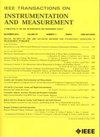CRKD-YOLO: Cross-Resolution Knowledge Distillation for Low-Resolution Remote Sensing Image Object Detection
IF 5.6
2区 工程技术
Q1 ENGINEERING, ELECTRICAL & ELECTRONIC
IEEE Transactions on Instrumentation and Measurement
Pub Date : 2025-04-10
DOI:10.1109/TIM.2025.3559616
引用次数: 0
Abstract
The majority of advanced remote sensing object detection technologies excel in accurately detecting objects from high-resolution images. However, in practical scenarios, it is often necessary to detect objects in images of varying resolutions due to differences in imaging equipment. When dealing with lower-resolution images, the limited detailed information and blurry boundaries lead to a noticeable decrease in detection accuracy. To address this problem, we propose an efficient object detection method for low-resolution remote sensing images based on the YOLO detector, named CRKD-YOLO. The method constructs a cross-resolution knowledge distillation (CRKD) framework to resolve the issue of feature mismatch, enabling the model with low-resolution inputs to learn more refined feature representations from high-resolution images. Furthermore, to effectively leverage the limited detailed information in low-resolution images, we propose the backbone augment feature pyramid network (BAFPN). It enhances detection accuracy for low-resolution remote sensing images while making the model more lightweight. Massive experiments on DOTA, DIOR, NWPU VHR-10, DroneVehicle, and VEDAI demonstrate that our CRKD-YOLO achieves significant improvements, even achieving higher accuracy compare to training and testing high-resolution images with baseline. Our code is published atCRKD-YOLO:低分辨率遥感图像目标检测的跨分辨率知识蒸馏
大多数先进的遥感目标检测技术都擅长于从高分辨率图像中准确地检测目标。然而,在实际场景中,由于成像设备的不同,往往需要在不同分辨率的图像中检测物体。当处理低分辨率图像时,有限的细节信息和模糊的边界导致检测精度明显下降。为了解决这一问题,我们提出了一种基于YOLO探测器的低分辨率遥感图像高效目标检测方法,命名为CRKD-YOLO。该方法构建了一个跨分辨率知识蒸馏(CRKD)框架来解决特征不匹配问题,使低分辨率输入的模型能够从高分辨率图像中学习到更精细的特征表示。此外,为了有效利用低分辨率图像中有限的细节信息,我们提出了骨干增强特征金字塔网络(BAFPN)。它提高了低分辨率遥感图像的检测精度,同时使模型更轻量化。在DOTA、DIOR、NWPU VHR-10、drone - vehicle和VEDAI上进行的大量实验表明,我们的CRKD-YOLO取得了显著的改进,甚至比基线训练和测试高分辨率图像取得了更高的精度。我们的代码发布在https://github.com/Jianfantasy/CRKD-YOLO
本文章由计算机程序翻译,如有差异,请以英文原文为准。
求助全文
约1分钟内获得全文
求助全文
来源期刊

IEEE Transactions on Instrumentation and Measurement
工程技术-工程:电子与电气
CiteScore
9.00
自引率
23.20%
发文量
1294
审稿时长
3.9 months
期刊介绍:
Papers are sought that address innovative solutions to the development and use of electrical and electronic instruments and equipment to measure, monitor and/or record physical phenomena for the purpose of advancing measurement science, methods, functionality and applications. The scope of these papers may encompass: (1) theory, methodology, and practice of measurement; (2) design, development and evaluation of instrumentation and measurement systems and components used in generating, acquiring, conditioning and processing signals; (3) analysis, representation, display, and preservation of the information obtained from a set of measurements; and (4) scientific and technical support to establishment and maintenance of technical standards in the field of Instrumentation and Measurement.
 求助内容:
求助内容: 应助结果提醒方式:
应助结果提醒方式:


